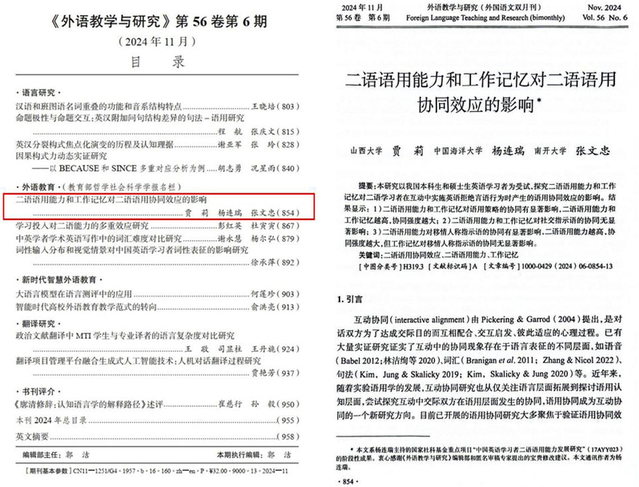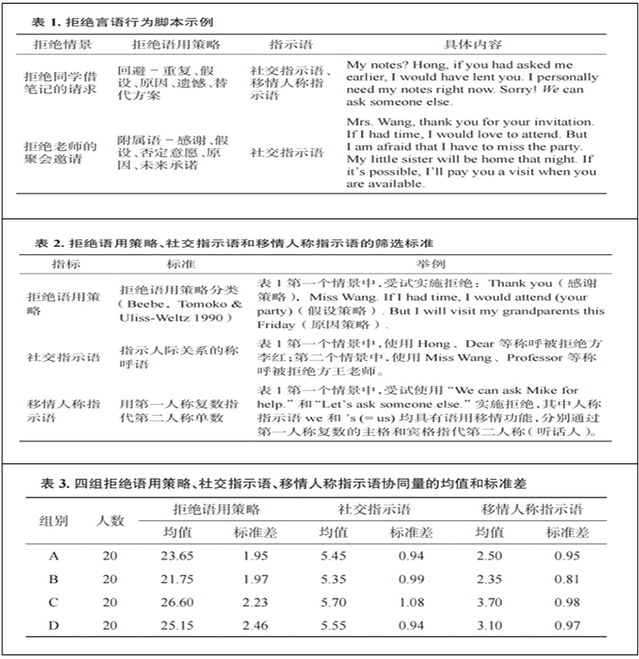Recently, the interdisciplinary research team on second language acquisition led by Professor Yang Lianrui from the College of Foreign Languages, published a research paper, titled The Influence of Pragmatic Competence and Working Memory on Pragmatic Alignment in L2, in Foreign Language Teaching and Research, the sole authoritative journal in the field of foreign languages in China. To uncover the laws governing the development of second language (L2) pragmatic competence, this study focused on English learners at the undergraduate and master’s levels in China as its research subjects, and revealed the influence of L2 pragmatic competence and working memory on the pragmatic alignment effect produced when L2 learners perform speech acts of refusal in English during interactions.

Pragmatic alignment occurs at the level of pragmatic representational level beyond linguistic representational. It refers to the phenomenon in which an individual accurately grasps the pragmatic meaning of the interlocutor's utterance during interactions, gets inspired by the interlocutor, dynamically coordinates with the interlocutor, and converges towards the pragmatic representations used by the interlocutor. Using the confederate scripting technique task, this study explored the influence of two factors, namely L2 pragmatic competence and working memory, on the pragmatic alignment exhibited by L2 learners performing speech acts of refusal in English. The study found that L2 pragmatic competence and working memory are important factors influencing the L2 pragmatic alignment. However, their impacts vary across the alignment of pragmatic strategies, social deixis, and empathic person deixis. Specifically, both L2 pragmatic competence and working memory significantly affect the alignment of pragmatic strategies, with higher levels of L2 pragmatic competence and working memory leading to stronger alignment. In contrast, neither L2 pragmatic competence nor working memory has a significant impact on the alignment of social deixis. Furthermore, L2 pragmatic competence significantly influences the alignment of empathic person deixis, with higher L2 pragmatic competence resulting in stronger alignment, whereas working memory does not show a significant effect on the alignment of empathic person deixis.
The research findings suggest that the emergence of L2 pragmatic alignment is a process affected by individual differences, such as L2 pragmatic competence and working memory. This research enriches and deepens the study of L2 interactional alignment, and holds significant implications for the learning and teaching of L2 pragmatic knowledge.








